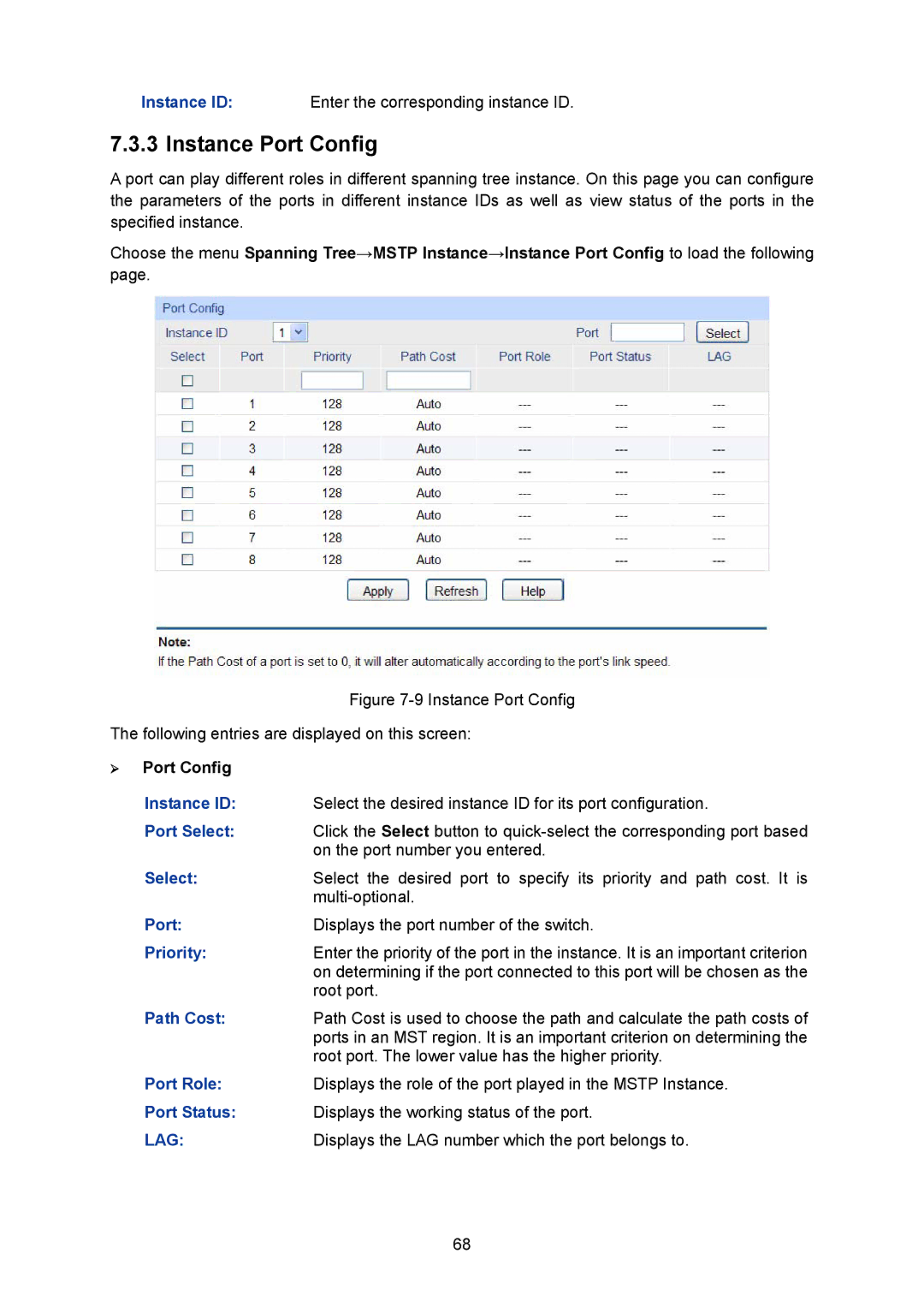
Instance ID: Enter the corresponding instance ID.
7.3.3 Instance Port Config
A port can play different roles in different spanning tree instance. On this page you can configure the parameters of the ports in different instance IDs as well as view status of the ports in the specified instance.
Choose the menu Spanning Tree→MSTP Instance→Instance Port Config to load the following
page.
Figure 7-9 Instance Port Config
The following entries are displayed on this screen:
¾ Port Config |
|
Instance ID: | Select the desired instance ID for its port configuration. |
Port Select: | Click the Select button to |
| on the port number you entered. |
Select: | Select the desired port to specify its priority and path cost. It is |
| |
Port: | Displays the port number of the switch. |
Priority: | Enter the priority of the port in the instance. It is an important criterion |
| on determining if the port connected to this port will be chosen as the |
| root port. |
Path Cost: | Path Cost is used to choose the path and calculate the path costs of |
| ports in an MST region. It is an important criterion on determining the |
| root port. The lower value has the higher priority. |
Port Role: | Displays the role of the port played in the MSTP Instance. |
Port Status: | Displays the working status of the port. |
LAG: | Displays the LAG number which the port belongs to. |
68
